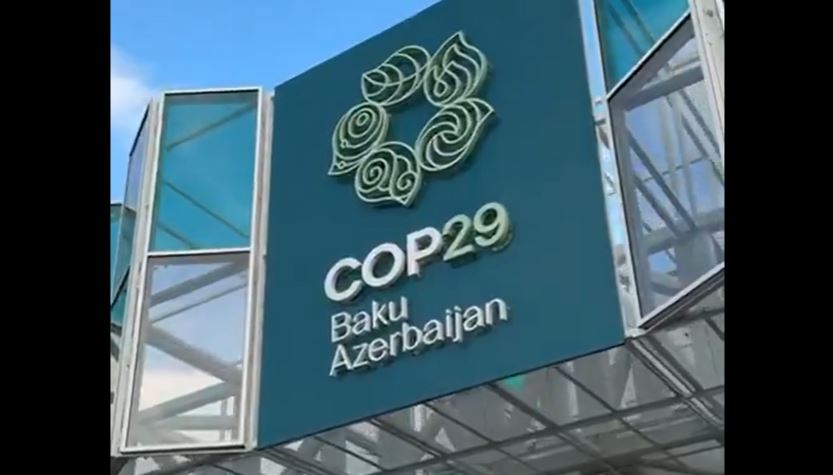As world leaders, activists, and scientists gather for the annual United Nations Climate Change Conference (COP29), the atmosphere is one of both anticipation and frustration. While there is hope that this year’s COP29 (Conference of the Parties). will lead to significant strides in climate action, there is also palpable tension due to the perceived slow pace of global response in the face of increasingly severe climate crises. COP29 is more urgent than ever, with extreme weather events such as floods, wildfires, and hurricanes wreaking havoc across the globe, and vulnerable nations bearing the brunt of these disasters.
World leaders will gather for about two weeks in the former Soviet republic of Azerbaijan starting Monday, with the goal of figuring out how much wealthy countries should pay to help developing nations facing the devastating effects of climate change. COP29, being held in Baku, Azerbaijan, involves representatives and negotiators from 197 nations who have signed on to the United Nations Framework Convention on Climate Change.
The 12-day conference brings together diplomats, scientists, activists, lobbyists, environmental groups and businesses
Standing together, in solidarity for a green world.
Let’s get to work.#COP29 #COP29Azerbaijan pic.twitter.com/TIZwMpKRrs
— COP29 Azerbaijan (@COP29_AZ) November 12, 2024
COP29: A Tipping Point for Global Action?
The importance of this year’s COP29 summit cannot be overstated. Over the past year alone, climate calamities have become even more destructive. Countries like Pakistan and Spain, which experienced record-breaking floods, saw millions of people displaced and widespread damage to infrastructure. California and Greece have faced devastating wildfires, while communities across the Caribbean and southeastern United States continue to be battered by intensifying hurricanes. Rising temperatures, droughts, and shifting climate patterns are threatening food security, increasing energy demands, and challenging governments worldwide to take immediate action.
This backdrop of mounting urgency adds pressure on COP29 delegates to bridge political divides and deliver actionable commitments. The science is clear: unless global emissions are drastically reduced, these climate-related catastrophes will only worsen. COP29 represents a critical opportunity for countries to demonstrate their commitment to addressing climate change by setting ambitious goals and enforcing the accountability needed to achieve them.
The Mood on the Ground
The attendees at COP29 reflect a mixture of optimism and growing frustration. Environmental activists, scientists, and leaders from developing nations are particularly vocal in calling for rapid and equitable action, emphasizing that developing countries are often the hardest hit by climate impacts despite being among the least responsible for global emissions. They demand more substantial commitments from wealthy, industrialized nations, urging them to deliver on promises of climate financing to support adaptation and resilience-building in vulnerable regions.
The Arctic is warming nearly 3x faster than the rest of the planet, driving global heating, sea level rise, & ecosystem loss🌡️
To protect the Arctic & our planet, we must cut greenhouse gas emissions.
RT to urge leaders to take stronger climate action! #COP29 #ActForOurPlanet pic.twitter.com/aukOxDqcq6
— WWF (@WWF) November 7, 2024
However, despite these demands, there is frustration about the progress made so far. Many feel that previous COP29 summits have yielded too many promises and not enough action. While countries have pledged billions in climate financing, much of that money has yet to materialize. Additionally, some of the largest emitters have been criticized for not setting clear timelines or roadmaps to phase out fossil fuels.
The Role of Key Nations
As always, the success of COP largely depends on the commitment and leadership of key players:
- The United States has signaled a renewed commitment to climate action with recent legislation aimed at reducing emissions and promoting clean energy. However, the country faces challenges in convincing other nations due to its historic emissions record and previous withdrawals from climate agreements. The U.S. delegation will be under pressure to lead by example and secure binding commitments after the recent elections. It is interesting that, in 2020, then-President Trump withdrew the U.S. from the Paris Agreement. One hundred and seven days later, the country rejoined it after Joe Biden was elected president.
- China, the world’s largest emitter, plays a crucial role in these negotiations. While it has made strides toward renewable energy investments and has committed to carbon neutrality by 2060, China remains reliant on coal, and its approach to emissions reduction remains a key factor in COP outcomes. Cooperation between the U.S. and China, despite geopolitical tensions, is essential to achieving global climate goals.
- The European Union has been a consistent climate leader, pushing for ambitious emissions reductions and climate-friendly policies within its member states. The EU’s Green Deal has set high standards for sustainability, but the bloc faces internal challenges balancing the needs of diverse economies.
- Developing Nations and Small Island States are some of the most vocal at COP29, advocating for financial support to adapt to the impacts of climate change and calling for climate justice. These nations contribute the least to global emissions yet suffer disproportionately from the impacts of climate change, and they are increasingly calling for accountability from wealthier countries.
Will COP Deliver?
With the summit underway, the global community watches with anticipation. The need for a clear, enforceable roadmap to drastically reduce emissions, alongside tangible financial commitments, has never been more urgent. This year’s COP29 must be a turning point, where world leaders pivot from discussions to concrete actions, enforcing both short- and long-term strategies that address the pressing needs of vulnerable populations and future generations alike.
Whether COP29 will deliver on its promise remains to be seen, but one thing is certain: the world cannot afford to wait any longer. As climate catastrophes continue to escalate, so too does the need for decisive and united action.

